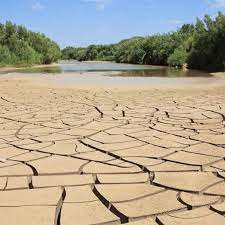
Muhammad Haider Arif / Furqan Ali
Water is the elixir of life, sustaining every living being on this planet and infusing nature with its fluid beauty. It is essential for human life, agriculture, and economic development.
“Anyone who can solve the problems of water will be worthy of two noble prizes – one for peace and one for science.”
John F Kennedy
Indeed, the water crisis is not just a scientific challenge, but also a crucial step towards global peace and security.
Pakistan is facing a severe water crisis that threatens its economy, environment and people. According to the World Bank, Pakistan is one of the most water-stressed countries in the world, with a per capita water availability of less than 1,000 cubic meters, which is the threshold for water scarcity. The average water consumption per capita in urban areas of Pakistan is estimated to be around 100-120 liters per day and in rural areas, around 60-80 liters per day. The country’s average annual rainfall is well below the global average, and around 60% of its land area is classified as arid or semi-arid. Water quality is another major problem; more than 60% of the drinking water supply in Pakistan is contaminated. Considering the situation.
Public Safety Water Testing Facilities Commercial And
Domestic Consumers
Water testing facilities of water tube wells should be facilitated and drinking water allowed after testing. Lack of water supply in Pakistan requires the testing of water boring in the houses of the consumers by the concerned departments. Which can prevent water diseases which can create a healthy society
Public Awareness Mineral Water Supply without Test Report
Private mineral water companies in Pakistan supply mineral water at commercial level to domestic consumers and commercial centers. No mineral water company provides test report of mineral water at the time of supply, it should be strictly followed
The World Health Organization (WHO) recommends that drinking water should not contain more than 10 micrograms per litre of arsenic. However, in some areas of Pakistan, arsenic levels in drinking water are as high as 500 micrograms per litre. That deteriorating water quality, which poses highly significant health risks to the population. This has resulted in the spread of waterborne diseases, such as cholera and typhoid fever, which pose a significant public health challenge.
The water crisis has serious implications for Pakistan’s development and stability. Water scarcity not just affects the agricultural sector, which accounts for about 20% of the GDP and employs about 40% of the labour force. But it also affects the energy sector, which relies significantly on hydropower generation. Moreover, water disputes between provinces and neighbouring countries specially with India on the Indus Water Treaty (IWT) could escalate into conflicts that undermine regional peace and security.
The main causes of this crisis are rapid population growth, urbanization, climate change, inefficient water use, poor governance and lack of investment in water infrastructure.
To address these issues related to the crisis, Pakistan needs to adopt a comprehensive and integrated approach that involves all stakeholders and sectors.
Water and health
Contaminated water and poor sanitation are linked to transmission of diseases such as cholera, diarrhoea, dysentery, hepatitis A, typhoid and polio. Absent, inadequate, or inappropriately managed water and sanitation services expose individuals to preventable health risks. This is particularly the case in health care facilities where both patients and staff are placed at additional risk of infection and disease when water, sanitation and hygiene services are lacking. Globally, 15% of patients develop an infection during a hospital stay, with the proportion much greater in low-income countries.
Inadequate management of urban, industrial and agricultural wastewater means the drinking-water of hundreds of millions of people is dangerously contaminated or chemically polluted. Natural presence of chemicals, particularly in groundwater, can also be of health significance, including arsenic and fluoride, while other chemicals, such as lead, may be elevated in drinking-water as a result of leaching from water supply components in contact with drinking-water.
Some 829 000 people are estimated to die each year from diarrhoea as a result of unsafe drinking-water, sanitation and hand hygiene. Yet diarrhoea is largely preventable, and the deaths of 297 000 children aged under 5 years could be avoided each year if these risk factors were addressed. Where water is not readily available, people may decide handwashing is not a priority, thereby adding to the likelihood of diarrhoea and other diseases.
Diarrhoea is the most widely known disease linked to contaminated food and water but there are other hazards. In 2017, over 220 million people required preventative treatment for schistosomiasis – an acute and chronic disease caused by parasitic worms contracted through exposure to infested water.
In many parts of the world, insects that live or breed in water carry and transmit diseases such as dengue fever. Some of these insects, known as vectors, breed in clean, rather than dirty water, and household drinking water containers can serve as breeding grounds. The simple intervention of covering water storage containers can reduce vector breeding and may also reduce faecal contamination of water at the household level.
(Writers are student of Qauid e Azam university )





